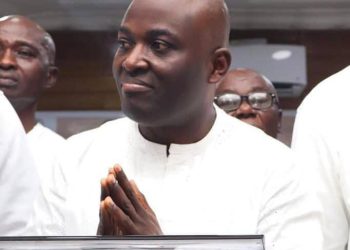Turn off your TV for a minute and turn to your partner. Ignore their cries of ‘why have you just done that?’. This is important.
There are 10 questions everyone in a relationship needs to ask of themselves and their partners to make sure their bond will last, new research from the University of Exeter argues.
Sadly, none of the questions are along the lines of ‘how do you take your tea?’, ‘will you make me fresh pasta every day?’ or ‘would you be up for waking me up every day by gently placing a kitten on my chest?’.
Instead, they’re genuinely important questions based in judging compatibility and commitment based on evidence from couples, family lawyers, mediators and judges.
Fine. So, couples: Are you ready to ask those questions and deal with whatever fallout happens as a result? On we go…
- Are my partner and I a ‘good fit’?
- Do we have a strong basis of friendship?
- Do we want the same things in our relationship and out of life?
- Are our expectations realistic?
- Do we generally see the best in each other?
- Do we both work at keeping our relationship vibrant?
- Do we both feel we can discuss things freely and raise issues with each other?
- Are we both committed to working through hard times?
- When we face stressful circumstances would we pull together to get through it?
- Do we each have supportive others around us?
You’ll notice that these questions seem like simple ‘yes’ or ‘no’ ones, but they’re intended to start in-depth conversations.
Couples genuinely need to question if they feel they can raise issues with each other or whether they’re good friends – not just raise through the list choosing the ‘right’ answers.
Professor Anne Barlow, who led the research, said: ‘Of course every relationship is different, and it is important that couples build relationships that are meaningful to them, but we found thriving relationships share some fundamental qualities.
‘Mostly the couple have chosen a partner with whom they are a “good fit” and have ways of successfully navigating stressful times.
‘These 10 critical questions can help people as they decide if they are compatible with a person they are considering sharing their life with and flag the importance of dealing with issues when they arise as well as of nurturing the relationship over time.
Divorce lawyer Baroness Shackleton said: ‘Wearing my “professional hat” – as a divorce lawyer for over 40 years – more than 50% of the people consulting me about divorce have said they realised either before or very soon into their marriages, that they were fundamentally incompatible with their partners. ‘Wearing my “educational hat”, as a former school governor, I am acutely aware that whilst there is much school-directed education on sex, drugs and alcohol, there is little or none in relation to the most important decision a person makes – namely with whom you settle down and have children. ‘Finally, wearing my “philanthropic hat” and seeing the untold grief children suffer when their parents separate, I felt it time to sponsor a project exploring just what makes a relationship successful and how best to maximise the chances of it succeeding, the idea being to present the resulting research in schools as an educational tool and pre-intervention measure. ‘If as a consequence of this, fundamentally incompatible partnerships are prevented, it will have been money well spent.’
To create the list of questions, the experts involved in the study interviewed 10 divorce lawyers and mediators and two judges to ask them about the key reasons relationships fail.
They also interviewed 43 couples married for 10 years, or who had separated during that period, and 10 couples in same-sex and opposite-sex relationships who had been living together, married, or in a civil partnership for at least 15 years. They found that the four common reasons for a relationship breakdown are incompatibility, unrealistic expectations, failure to deal with issues, and failure to nurture the relationship.
The 10 critical questions are designed to get you talking about those four common reasons and spotting a potential mismatch before it causes problems. The questions also point to what the researchers found were key attributes and skills for happy relationships that last.
Key attributes you need for a healthy relationship:
- Taking things slow and choosing a partner carefully
- Underlying friendship
- Having realistic expectations
- Seeing the best in each other
- Working at the relationship
- Having time together and apart.
- It’s important to have time to explore individual interests
- Showing care in small acts of kindness
- Being committed Having open communication
- Building a relationship that suits the individual couple
- Adapting to change
- Having a support network
Don’t panic if your relationship isn’t ticking every box – you’ll notice that working at it and talking things through are key.
Express concerns, discuss differences, and see what adjustments you can make.
But if asking these questions fills you with a lingering dread that just won’t budge, and talking about the issues doesn’t help, it might be time to consider calling it quits.
–
Source: Metro UK










